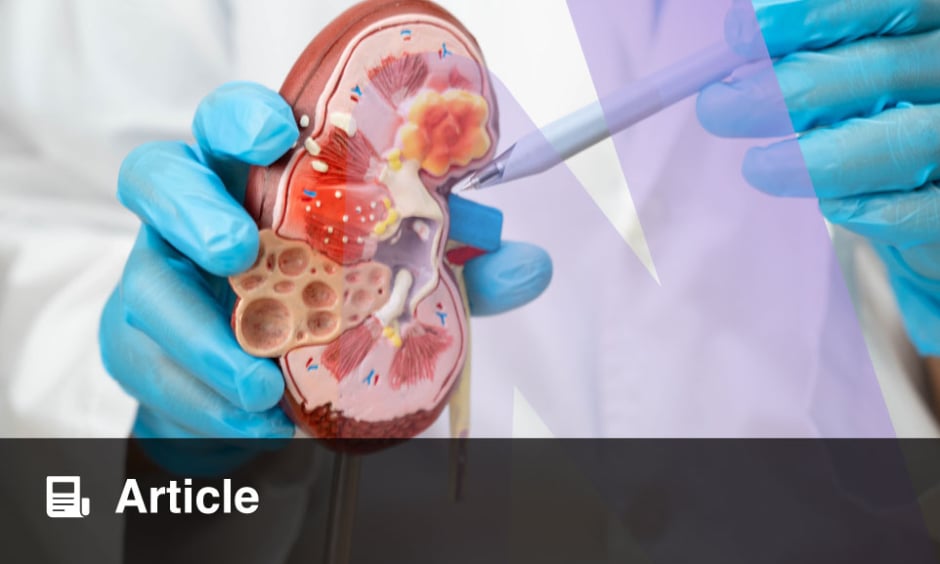Emer Kelly | Respiratory Consultant and General Physician, St. Vincent’s University Hospital, Dublin, Ireland
Citation: EMJ. 2024;9[1]:28-30. DOI/10.33590/emj/11000035. https://doi.org/10.33590/emj/11000035.
![]()
What sparked your initial interest in respiratory health, and led you to pursue a career in this specialty?
I had asthma as a child, so I have experienced breathlessness firsthand. The real urgency of this symptom inspired me to understand it better, and to understand the diseases that cause it. The need to help patients with respiratory symptoms drives me every day.
Having trained in both Ireland and the USA, what do you believe you have gained from these experiences, and how have they filtered into your daily practice?
I have been privileged to work in these two health services. During my training in the USA, at the Harvard Pulmonary and Critical Care Fellowship, I had the opportunity to work in world-renowned centres, and see the expanding frontier of medical progress. It was also interesting to see the challenges of paying for this care. In Ireland, as in many European countries, we also face the challenge of meeting healthcare needs in a more socialised medicine setting. In my daily practice, I am driven to have patients receive the healthcare they need, and to make sure this is valued in society.
Could you explain the impacts of a multidisciplinary approach to healthcare, and the benefits for both patients and physicians?
One of my favourite parts of my role in caring for patients with chronic obstructive pulmonary disorder (COPD), is working with the multidisciplinary team to reach this goal. Patients value the holistic approach greatly, and I think the doctor often plays a more minor role in the care. I continue to learn from the nurses, physiotherapists, and other members of the team on a daily basis. I think the strength of this approach is best seen in the pulmonary rehabilitation setting. This is a highlight in my work. As physicians, we are often the person a patient needs when they are very unwell, but it is so great to be involved in keeping a patient as well as they can be, instead of waiting for a crisis.
What were the key takeaways from your recent publication, ‘Caring for Patients with Advanced COPD: Beyond the Inhalers’?
This was a review article to summarise the multifaceted approach to help patients with advanced COPD. Key points of this paper included that O2 therapy reduces mortality in patients with COPD with severe hypoxaemic respiratory failure; non-invasive ventilation is of benefit in some patients, as it can improve admission-free survival in stable hypercapnic patients, or persistently hypercapnic patients post-acute exacerbation of COPD; and physiotherapy and rehabilitation approaches can address dyspnoea management, and improve exercise tolerance. Furthermore, consideration of lung volume reduction via surgical or bronchoscopic approaches is appropriate for patients within set criteria; lung transplantation assessment is appropriate for a subgroup of patients, although mortality benefit is not demonstrated; and symptom management with a palliative approach can run alongside the other treatments.
What do you believe is the most significant reasoning behind the importance of multidisciplinary care for COPD, and how has this research been received upon implementation into practice?
I think it is the recognition that our drugs and medical therapies are only part of the solution to optimal care, and that engaging with each individual patient, and understanding their individual needs, is paramount. Even when we have effective therapies, the coaching on how to take the medication, techniques on using inhalers, and confidence that the medication is right for them, come from an effective multidisciplinary team approach. The multifaceted approach also helps to address symptoms in daily life.
I have received positive feedback in relation to this article, and it has served as a valuable resource to those involved in COPD care. It has also served to improve collaboration with others who are researching within this field. On a practical level, it has helped us to establish pathways for referral for lung volume reduction interventions and transplant on a local level.
The focus on palliative care has led to collaborations with community-, hospital-, and hospice-based services. We were a major recruiting centre for the BETTER-B trial, partnering with the Cicely Saunders Institute at King’s College Hospital, London, UK, which was a randomised controlled trial investigating the use of mirtazapine for dyspnoea in advanced lung disease. Randomised controlled trials are not very common in palliative care, and the clinical/symptom need would argue for more such trials. Setting up our COPD patient registry puts us in a better position to have patients with COPD help to push forward progress in their disease.
Looking to the future, where can we expect to see your research focuses lie in the coming years?
I think there is great hope for the future care of patients with COPD. There are areas for further research and service development within advanced COPD. More widespread support for O2 therapy and non-invasive ventilation follow-up care may help with appropriate prescription and therapy compliance, to optimise this expensive resource for each patient. Studies are needed to clarify which patient cohorts may benefit from referral to transplant, rather than lung volume reduction options. Within the area of lung transplant, work continues on donor organ preservation methods and reconditioning of lungs, and a more focused approach is now being adopted with respect to the area of personalised medicine in immunosuppression treatments. Results are to come through from ongoing trials in the area of pharmacological management of dyspnoea. It has been exciting to be involved in trials in palliating the symptom of dyspnoea. Ongoing collaboration with palliative care colleagues, in combination with further training in this skillset for pulmonary specialists, is likely to improve symptom management care for these patients.
As an eLearning Resources Director of the European Respiratory Society (ERS), what do you believe are the benefits eLearning can provide to clinical care?
I think eLearning can remove barriers to further learning in many settings. At the ERS, we are a European society with a global outlook. The expansion of online resources, and support for lower- and middle-income nations to have access to learning resources, will hopefully empower physicians working all over the world to optimally manage their respiratory patients within the resources available, and to fight to improve these resources.
Barriers to learning can exist in many other settings. Healthcare workers with busy lives professionally and at home are now able to access up-to-the-minute resources on their terms, and on their schedule. It has been a great privilege to work with my ERS colleagues to push this forward over the last few years.
Are there any innovations in the field of respiratory health that you are particularly excited to see translated into practice?
I am excited to see patients with COPD moving into the spotlight, in terms of clinical trials and innovations. This patient group has not been prioritised enough over the years. I have enjoyed working with my wonderful patients in setting up a research registry, and am motivated by their willingness to participate, and move things forward for themselves, and for other patients, into the future.







